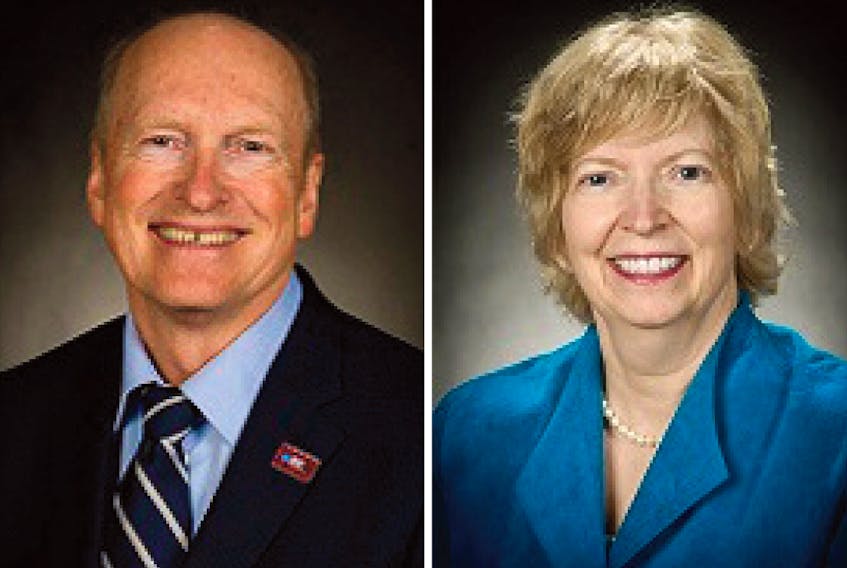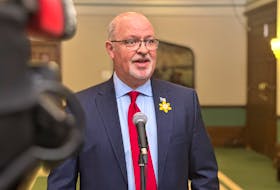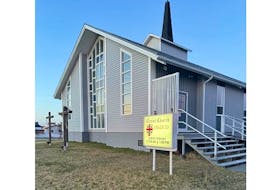An unconventional approach to one of its highest honours makes perfect sense for the World Organization of National Colleges, Academies and Academic Associations of General Practitioners/Family Physicians (WONCA).
The WONCA 5-Star Doctors for the North America region made an unusual decision in 2017 as it named Dr. Leslie Rourke and Dr. James Rourke co-winners of the award, which generally goes to a single recipient.
The Rourkes were co-honoured for their life’s work as family physicians and the significant contributions they have made to family medicine for the past 35 years, including the development of the Rourke Baby Record.
The have demonstrated a commitment to the roles and principles that characterize family physicians, and as family doctors and leaders in the discipline, embodying the five pillars of excellence in health care characteristic of 5-star doctors.
Leslie said the news came as a surprise to both of them when they were notified of the award.
“This is a combination of us being humbled and honoured for being recognized for our life’s work,” Leslie said from Florida on New Year’s Day.
“To win it together is the most wonderful part of the award,” she added, noting that Jim was suffering from laryngitis and was having trouble speaking on Monday.
She said thousands of doctors were eligible who could have won the award and, as doctors, they each represent the kind of doctors they aspire to be when they enter the profession.
For WONCA to recommend the couple to be their 5-star doctors for 2017 and to be nominated as a couple is special, she said.
“As we say, Jim is 2.5 and I am 2.5 which makes us 5-star,” she quipped.
“We have worked closely as a couple on many initiatives and have earned awards separately throughout the years, things for the Rourke Baby Record, our works in rural education and in health care,” she added.
Leslie even led the charge in Ontario as an advocate for bike helmet safety changes.
The couple have been practice partners throughout their careers, taught alongside one another — first at the University of Western Ontario (UWO), then at Memorial University of Newfoundland (MUN) — and have exemplified the five pillars of the WONCA 5-Star Doctor, through their individual accomplishments and their collaborative work with one another.
Both have received numerous awards of recognition throughout their extensive careers in family medicine. Among them are awards from UWO, MUN, the CFPC, the SRPC, and the College of Physicians and Surgeons of Ontario, all recognizing excellence and leadership in their contributions to the discipline of family medicine.
The Rourkes have worked together for more than 35 years, including their initial practice in Goderich, Ont., for the first 25 years, where as rural family physicians, their practice was comprehensive, including obstetrics and emergency care.
The Goderich practice was also a main UWO rural family medicine teaching site.
After a move to St. John’s in 2004 to take on the role of dean of medicine at MUN, Jim continued to practice in rural communities in Newfoundland and Labrador, travelling extensively throughout the province and in New Brunswick to visit teaching sites and provide clinical care. He also delivered humanitarian care and aid in Haiti in his role as a board member with Team Broken Earth.
After leaving her Goderich practice for the east coast, Leslie continued to see patients and practice family medicine in St. John’s.
She remained a comprehensive care provider, serving a patient-community of all ages, from infants to the elderly, and adapted to the medically unique patient population under her care, due to genetically related syndromes that are less common in other parts of Canada.
Outside of the scope of practice, they have been integral members of the university faculties at UWO and MUN, working to deliver and improve medical education for future physicians, and both have also co-authored numerous papers, book chapters and journal articles alongside their peers.
Jim has had more than 100 medical journal articles and book chapters published. In addition, he has delivered more than 100 lectures, workshops and presentations spanning from 1974 to present — including several WONCA conferences.
Those presentations have covered a variety of topics related to practicing rural family medicine, rural emergency services, medical education and integrating social accountability in medical school curriculums.
He has been a professor of family medicine at MUN since 2004, and was also the dean of medicine until 2016. He previously served as the assistant dean of rural regional medicine at UWO, where he was also a professor in the department of family medicine.
Likewise, Leslie has published 40 journal articles and eight book chapters. She has lectured widely on evidence-based preventative pediatric health care, relationships and boundary issues for physicians and their families, and issues facing rural physicians, with a focus on women’s issues.
She was an adjunct professor for UWO’s department of family medicine and taught medical students and residents in her practice in Goderich beginning in 1984, and continud to do so in her practice in St. John’s. She was a full-time faculty member at MUN, and was named professor emerita of family medicine when she retired in 2016.
What is WONCA?
WONCA is an unusual yet convenient acronym comprising the first five initials of the organization’s name that, in short, is the World Organization of Family Doctors.
It is a not-for-profit organization and was founded in 1972 by member organizations in 18 countries. WONCA now has 118 member organizations in 131 countries and territories, with membership of about 500,000 family doctors, serving more than 90 per cent of the world’s population.
This includes eight organizations in collaborative relations with WONCA. There are 21 members in the academic membership category, which consists of academic departments of family medicine. Over 800 individual general practitioners and family physicians have chosen to join WONCA in their own right.
WONCA represents and acts as an advocate for its members at an international level, where it interacts with world bodies such as the World Health Organization, with whom it has official relations as a non-governmental organization and is engaged in a number of collaborative projects.
The WONCA world secretariat transferred from Singapore to Bangkok in November 2012.
Rourke Baby Record continues to evolve
For nearly four decades, parents and their doctors have been able to formulate a plan to care for children from coast to coast to coast.
The means that has made this possible is the Rourke Baby Record, a system that many Canadian doctors and other health care professionals use for well-baby and well-child visits for infants and children from one week to five years of age.
Developed by doctors Leslie and James Rourke, both former family physicians in St. John’s and educators of family medicine, the Rourke Baby Record was introduced in 1979 as an evidence-based health supervision guide for primary health care practitioners of children in the first five years of life.
“With the explosion in new literature and evidence for recommendations for care of children, it is increasingly difficult for the individual doctor to stay current in all areas,” Leslie Rourke said.
“The Rourke Baby Record (RBR) organizes a vast amount of information to help doctors and those caring for children keep up to date, and through its parent resources, helps provide reliable information for parents about common health issues for their young children. This is a key to its popularity and widespread use.”
Jurisdictions such as Ontario, Nova Scotia, Nunavut and the Northwest Territories have recently adopted the use of the RBR.
“With our permission, the national version of the RBR has been modified by several provinces, territories and regions for their unique populations,” she said.
A recent list of modifications was released and appears on the RBR website (http://www.rourkebabyrecord.ca/updates).
Rourke said changes occur about every three years and this year’s derivations include areas such as the introduction of solid foods and allergenic foods to a child’s diet.
She said introducing these allergenic foods to babies in the first six months of life provides a greater chance of an infant developing antibodies that will reduce allergies.
A second change of major significance has to do with studying social detminants of health and poverty. This allows health professionals to make inquiries to families to see if they are making ends meet or feeding their families, and how poverty is tied to health.
The Rourke Baby Record revolutionized well-baby visits, creating a record system that included nutrition, development and family issues, among other factors.
At a time when well-baby visits consisted of little more than a vaccination, the Rourkes recognized a gap and acted, creating the Rourke Baby Record. The record is a tool that simplifies evidence-based well-baby/child care from ages 0-5.
The Rourke Baby Record has been used extensively by physicians for more than 35 years, and has seen numerous updates and revisions as new evidence has emerged.
It has been updated jointly several times since its first iteration.
In 1998, the tool was revised with Dr. Jacqui Wakefield to include recommendations from the 1994 Canadian Task Force on Periodic Health Examination.
Since 1999, the Rourkes have continued to update the tool in collaboration with Dr. Denis Leduc, past-president of the Canadian Pediatric Society, who is now a co-author of the record.
“The RBR is increasingly being incorporated into electronic medical records (EMRs) used by doctors and other health care professionals. The goal is the same: to spread best practice in order to improve the health of infants and young children,” she said.
The RBR system uses forms (Guides I to V) for charting the well-baby visits, and resources pages one to three that summarize current information and provide links to supporting resources for health care professionals.
The RBR contains guidelines and information for comprehensive well-baby/child care, including growth and nutrition monitoring, developmental surveillance, physical examination parameters, immunizations and anticipatory guidance on safety, family, behaviour and health promotion issues.
The Memorial University faculty of medicine has been one of the organizations that have provided significant support for the RBR — in addition to the Government of Ontario, Canadian Paediatric Society, College of Family Physicians of Canada and Dietitians of Canada.
Rourke retired from medical practice and from being a full professor at MUN in 2016, but her work on the RBR has served as a major retirement project.
“It has been my passion throughout my career,” Rourke said.
“We do not take any money ourselves for this, and the RBR is freely available.”
Both the College of Family Physicians of Canada (CFPC) and the Canadian Pediatric Society endorse the RBR.
Leslie Rourke was awarded the Dr. Wallace J. Ingram Award in 2006 for new faculty at Memorial University, which was used to fund the development of the Rourke Baby Record website (www.rourkebabyrecord.ca), making the free resource even more accessible for physicians worldwide.









